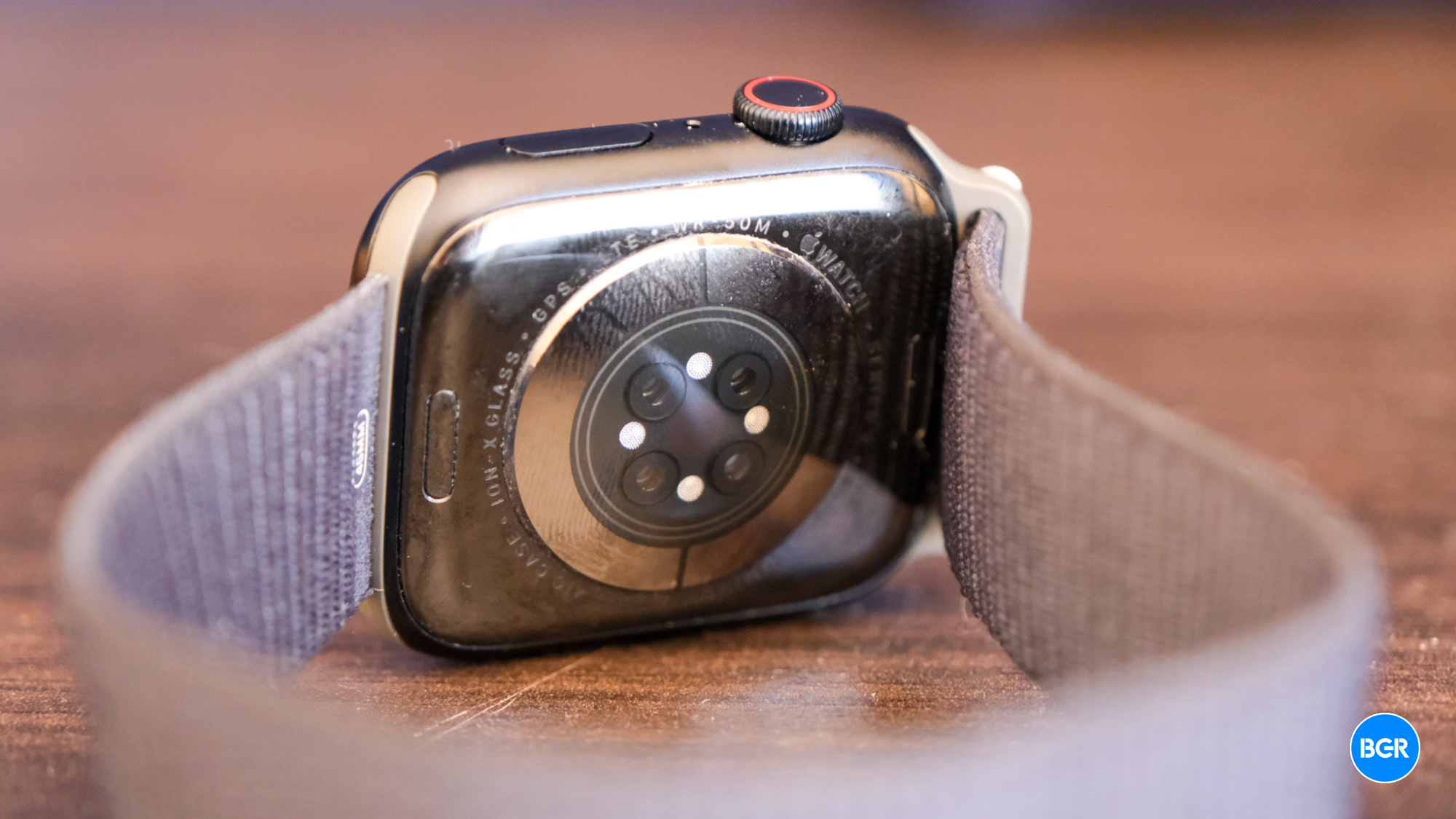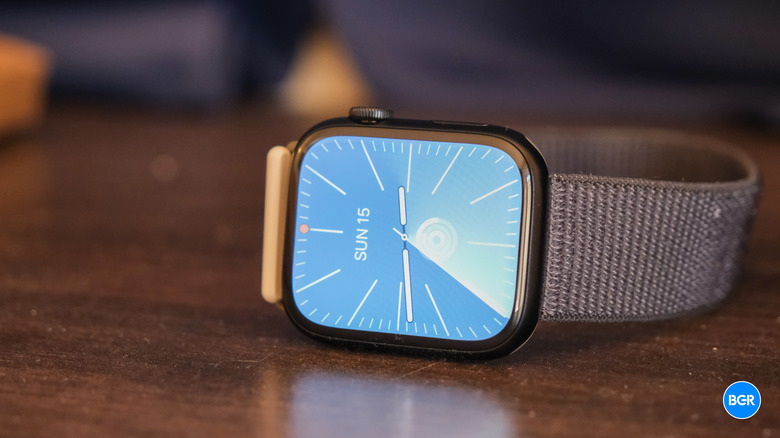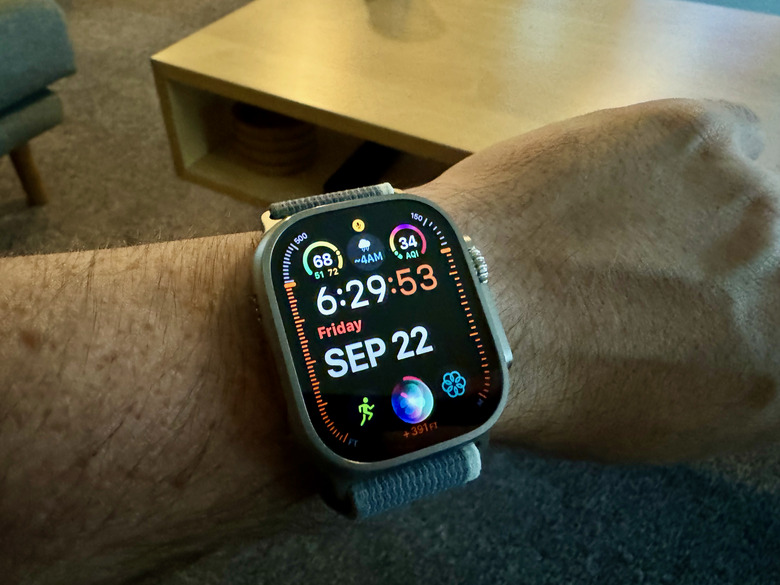Will The Apple Watch Ever Work With Android?
The Apple Watch needs an iPhone to work; that's how it has always been. You can't use it with an Android device, and that's apparently a big problem for the US government. It's one of the reasons the Justice Department sued Apple. The DoJ's big antitrust case was officially announced on Thursday.
It'll be a long and arduous fight that might take years to resolve. It'll be years until Apple will have to make changes to the products it sells in the US, and that's if the DoJ is successful in any of its claims.
It turns out that Apple might already have a defense in place for the Apple Watch. Apple confirmed it spent three years developing support for Android before scraping the idea.
On that note, I wonder whether Apple will rejuvenate those efforts. Not just because the government might force it to but because it might make sense.
The Apple Watch is one of the best smartwatches available to buyers, if not the best one. I'm a longtime Apple Watch user, so of course, I appreciate the wearable and its immediate effects on my well-being. I use it to track health parameters and exercise sessions. It's a key piece of computing for my health needs. I'm currently training for a marathon with an Apple Watch.
My subjectiveness aside, Apple's competitors are all trying to beat the Apple Watch. Some emulate its design. Others might copy the user interface and overall features. And let's not forget that the Apple Watch routinely makes the news for helping people discover health issues or saving their lives.

The DoJ accuses Apple of using the Apple Watch to effectively keep users buying iPhones. After all, without an iPhone, you can't use the Apple Watch. From the case against Apple, via 9to5Mac:
Apple's smartwatch—Apple Watch—is only compatible with the iPhone. So, if Apple can steer a user towards buying an Apple Watch, it becomes more costly for that user to purchase a different kind of smartphone because doing so requires the user to abandon their costly Apple Watch and buy a new, Android-compatible smartwatch.
That might be true, but I strongly disagree with that take. The Apple Watch isn't enough to keep me using the iPhone. The iPhone is. On that note, I could get a different wearable, and then pair it with an app for iPhone. But the Apple Watch is the best choice for me. I'm sure others would feel similarly, despite what the DoJ alleges.
Back to the Apple Watch working on Android, I think it would be a terrific idea for those smartphone users who want to stay on Android but want to have an Apple Watch help them manage their health. Apparently, Apple wanted to do it. The company told 9to5Mac as much.
Apple spent three years on bringing the Apple Watch to Android before scraping the idea. Rumors said in the past that such a project was in the works. It's unclear why Apple had to can the project, but I'm sure the lawsuit will surface all the tidbits.
How an Apple Watch would work with Android
I will point out some of the obvious roadblocks. Apple would want to offer Android users the same privacy and security it provides iPhone owners when it comes to health data. The Apple Health and Fitness apps it would have to make for Android would have to be just as secure as those on iPhone.
The same goes for data-sharing with other health apps that would want access to the information. The Apple Watch data would also have to be available to the default health app on the Android phone. It would also have to support the default assistant on Android, which is Google Assistant for hands-free commands.
Then, Apple would have to create an Apple Watch App Store for Android. That way, the user would be able to install other apps, including health apps, on the wearable. Not doing this step would draw scrutiny from the DoJ, I'm sure.
The Apple Watch for Android experience would have to be almost identical to the iPhone one, that is. Anything else, and the Apple Watch price would not feel right. And, again, the DoJ would probably get antitrust thoughts.
Of course, Android users would probably need to get Apple IDs to manage their devices and the data they collect. This might be seen as another way to eventually convert Android users to iPhone.
Finally, I'll note that the Health and Fitness apps come free of charge on iPhone because they're part of iOS and the overall Apple experience. But maybe Apple would need to charge some sort of subscription for making its health data algorithms available to Android users who'd only pay for the hardware and software of the Apple Watch by buying the wearable.
Also, I can't help but wonder how many Android users would buy an Apple Watch if it were available to them. That is, whether the whole thing would be profitable to Apple. That should be the main driving force behind making the Apple Watch work with Android phones. That's how Apple Watch for Android would make sense for Apple, beyond any DoJ antitrust lawsuit worries.
All of that is speculation from a longtime iPhone user who is also a longtime Apple Watch user. The nature of my job also means I know how these two devices work together. That it's a lot more than just a wireless link connecting them.
Three years spent on developing Android support means Apple has figured out solutions to some of the problems above. That it could resurrect the project in the future. Either to appease the DoJ or just to settle a future case. Also speculation. But we'll probably learn why Apple chose not to go forward with the initial plan before Android support comes to the Apple Watch.

